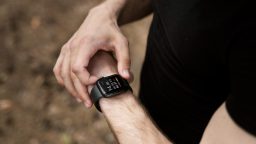In today’s digital world, social media has become a central part of our daily lives. From staying connected with friends and family to networking and sharing opinions, it’s hard to imagine life without it. But with the countless benefits come serious concerns about privacy. Whether you’re sharing a picture from your holiday or commenting on a friend’s post, every click you make could expose you to risks. In this article, we’ll explore how you can safeguard your privacy on social media and ensure you’re staying safe online.
Understand the Risks
First and foremost, it’s important to recognise the risks involved in using social media. Your personal information, such as your location, contact details, interests, and even your habits, is valuable to both advertisers and cybercriminals. While most social media platforms have privacy settings, they are not foolproof. It’s essential to stay informed and take steps to protect yourself.
Strengthen Your Privacy Settings
One of the easiest ways to secure your information is by adjusting your privacy settings. Each social media platform offers different options, but here are some general tips that apply to most:
- Set Your Profile to Private – Make sure only your trusted friends or followers can view your posts and personal information.
- Limit Who Can See Your Posts – Review the settings for each post. You may not want everyone to see your holiday photos or life updates.
- Review Your Friend List – Be selective about who you accept as friends or followers. A smaller circle of trusted individuals reduces the likelihood of exposing your information to strangers.
- Turn Off Location Services – Many platforms use location tagging to let others know where you are. While this feature is fun and useful, it also increases the risk of someone tracking your whereabouts. Turn it off, especially when posting in real time.
Be Careful What You Share
Think before you post. It’s tempting to share everything from your favourite restaurant to personal life updates, but some details could be more revealing than you realise. Always ask yourself: “Is this information necessary to share, and who will be able to see it?” Here are some examples of what to be cautious about:
- Personal Identification: Avoid sharing sensitive information like your address, phone number, or even your email address. These details can be used for identity theft or scams.
- Vacation Plans: Publicly announcing that you’re on holiday might invite burglars to target your home. Wait until you return to post your trip pictures.
- Over-Sharing Emotional Moments: While it’s natural to want to vent or share personal struggles, remember that social media is a public platform. Be mindful of what you share, as it can be taken out of context or used against you.
Protect Your Passwords
A strong password is your first line of defence. Use complex, unique passwords for each platform, and avoid using easily guessable information like your name, birthdate, or common phrases. Consider using a password manager to store your passwords securely. Additionally, enable two-factor authentication whenever possible. This adds an extra layer of security, requiring you to verify your identity with a second method, such as a code sent to your phone, when logging in.
Beware of Phishing Scams
Phishing scams are one of the most common ways cybercriminals attempt to steal personal information. These scams often appear as legitimate messages from friends, businesses, or even social media platforms themselves. They might ask you to click on a link or provide sensitive information, like your password or credit card details.
Always be cautious when receiving messages or emails from unknown senders. Double-check the URL of any link before clicking and avoid downloading files from unfamiliar sources.
Keep Software and Apps Updated
Ensure that your social media apps and device software are up to date. Updates often include security patches that protect against new threats. If you haven’t updated your apps in a while, it’s a good idea to check for the latest version.
Conclusion
Social media can be a fantastic tool for staying connected, learning new things, and even building a career. However, it’s crucial to take responsibility for your online privacy and security. By understanding the risks, adjusting privacy settings, being cautious about what you share, and practising good security habits, you can significantly reduce the chances of falling victim to online threats. Stay informed, stay safe, and enjoy your social media experience without compromising your privacy.





